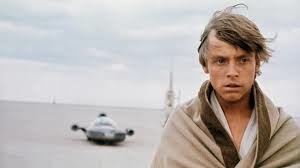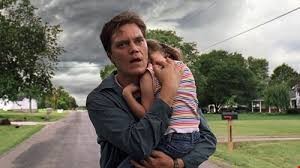date newest »
newest »
 newest »
newest »
message 1:
by
Ian
(new)
Jan 17, 2017 07:46AM
 Insightful and inspirational message, thank-you for this point. I'll add that it seems many writers find great success through fiction because they retain the core thematic message that produced success throughout their careers. Steven Speilberg returns again and again to the theme of the neglectful redeeming father. In Jaws, Brody feels responsible for the girl's death so he sets on a course to destroy the shark. In E.T., the family is without a father, and E.T. becomes like a new father for the boy and can only "go home" once the mom and the good scientist are together. Same goes for Schindler's List which has Schindler changing from a profiteer to a father-figure saving the Jews. Empire of the Sun with John Malkovich, Last Crusade with Sean Connery and Jurassic Park with Sam Neil's character learning to become a caring and protective 'father' of the children are other notable instances. Even the War of the Worlds sees Tom Cruise's character as a bad father redeemed by protecting the children from the alien invasion. I could go on, but this hidden motif in (not only) Spielberg's films of the lost and regained paternal love and authority while not necessarily a contributing factor to the success of the aforementioned films is certainly a key theme upon which the various stories are structured and the reason we are left feeling warm and fuzzy by the end.
Insightful and inspirational message, thank-you for this point. I'll add that it seems many writers find great success through fiction because they retain the core thematic message that produced success throughout their careers. Steven Speilberg returns again and again to the theme of the neglectful redeeming father. In Jaws, Brody feels responsible for the girl's death so he sets on a course to destroy the shark. In E.T., the family is without a father, and E.T. becomes like a new father for the boy and can only "go home" once the mom and the good scientist are together. Same goes for Schindler's List which has Schindler changing from a profiteer to a father-figure saving the Jews. Empire of the Sun with John Malkovich, Last Crusade with Sean Connery and Jurassic Park with Sam Neil's character learning to become a caring and protective 'father' of the children are other notable instances. Even the War of the Worlds sees Tom Cruise's character as a bad father redeemed by protecting the children from the alien invasion. I could go on, but this hidden motif in (not only) Spielberg's films of the lost and regained paternal love and authority while not necessarily a contributing factor to the success of the aforementioned films is certainly a key theme upon which the various stories are structured and the reason we are left feeling warm and fuzzy by the end.
reply
|
flag





